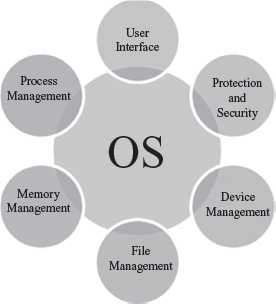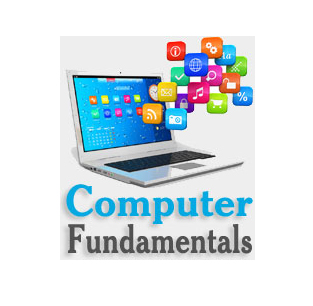Functions of OS
Functions of OS
Operating system is a large and complex software consisting of several components. Each component of the operating system has its own set of defined inputs and outputs. Different components of OS perform specific tasks to provide the overall functionality of the operating system
Main functions of the operating system are as follows :

Process Management
The process management activities handled by the OS are—
1. control access to shared resources like file, memory, I/O and CPU
2. control execution of applications
3. create, execute and delete a process (system process or user process)
4. cancel or resume a process
5. schedule a process
6. synchronization, communication and deadlock handling for processes.
Memory Management
The activities of memory management handled by OS are—
1. allocate memory
2. free memory
3. re-allocate memory to a program when a used block is freed
4. keep track of memory usage
File Management
The file management tasks include —
1. create and delete both files and directories
2. provide access to files
3. allocate space for files
4. keep back-up of files
5. secure files
Device Management
The device management tasks handled by OS are—
1. open, close and write device drivers
2. communicate, control and monitor the device driver
Protection and Security
OS protects the resources of system. User authentication, file attributes like read, write, encryption, and back-up of data are used by OS to provide basic protection.
User Interface or Command Interpreter
Operating system provides an interface between the computer user and the computer hardware. The user interface is a set of commands or a graphical user interface via which the user interacts with the applications and the hardware.
